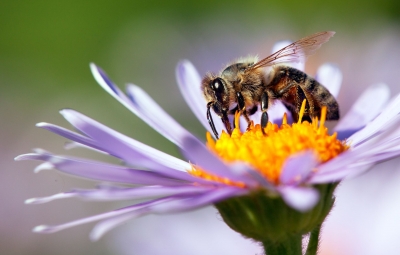
|
Bees are flying insects found in every continent of the earth (except Antarctica), and in every habitat where there are insect-pollinated flowering plants. There are over 16,000 species of bees! Bees like honeybees and bumblebees live in colonies, in hives or nests. Many fruits and vegetables that humans eat are pollinated by bees. Even food eaten by cattle and other farm animals needs bees for pollination. So, when we are eating plants directly or meat from an animal that has had a diet of plants, we depend on bees for our food. |
Why are bees important?
Health products
Not all bees produce honey, but it is one of the main reasons people value them. The substance is a natural sweetener with many potential health qualities.
People have used bees and bee-related products for medicinal purposes for thousands of years. ResearchersTrusted Source have noted claims that it has antioxidant, antimicrobial, anti-inflammatory, and anticancer properties.
Pollination
In recent years, it has become clear that honey may not be the most important reason to protect bees. This is because bees play a crucial role in pollination, where they use the hairs on their bodies to carry large grains of pollen between plants.
Around 75% of crops produce better yields if animals help them pollinate. Of all animals, bees are the most dominant pollinators of wild and crop plants. They visit over 90% of the world’s top 107 crops.
Historical importance
People have been working with bees around the world for millennia. The significance comes from the direct harvesting of honey and beeswax and cultural beliefs.
For example, the Ancient Greeks thought of bees as a symbol of immortality. In the 19th century, beekeepers in New England would inform their bees of any major events in human society. Meanwhile, native northern Australians used beeswax when producing rock art.
Society and the environment
Bees are very intelligent, and people have applied knowledge of their mannerisms and social interactions when creating human initiatives.
For example, researchers have suggested that studying the actions of bees could help experts develop emergency plans to evacuate people from an overcrowded environment.
How does this affect humans?
Farming practices, global warming, and disease are just a few reasons why bee numbers are declining. Experts are concerned about the impact on world food supplies, especially fruits, nuts, and vegetables.
They say that without bees, there will be no more nuts, coffee, cocoa, tomatoes, apples, or almonds, to name a few crops. This could lead to nutritional deficiencies in the human diet, as these products are essential sources of vital nutrients.
Additionally, the emergingTrusted Source medicinal properties of bee venom and other bee products may never be accessible without bees to provide them.
Credit : Medical news today
Picture Credit : Google




